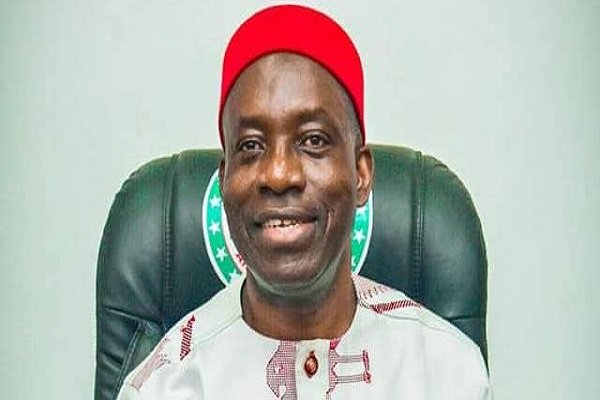
Anambra State may have entered a new chapter in its journey to become a viable entity. On March 17, 2022, Governor Chukwuma Charles Soludo, and his deputy, Dr Onyeka Ibezim, took the Oath of Office for their first term at the helms at Agu-Awka Government House. The significantly low-key inauguration, on Soludo’s considered advice, marked an early sign of the administration’s frugality in the use of state resources in pursuit of its dream “livable and prosperous smart megacity homeland envisioned to be the preferred destination for indigenes and other purposeful persons to live, learn, invest, work, relax and enjoy”.
After observing the administration’s journey for about four months, one can say that the terrain is rough, but the new helmsman appears determined to make a mark in governance. The aggregate potentials and possibilities in human and material forms in Anambra, capped with Gov. Soludo’s resolve, give impetus to the target ascent. So far, the governor has maintained a deafening level of consistency in walking his talk on his novel functional “disruptive change” mantra, impressed only by the doctrines of maximum public good and prudent use of the public funds. He would – while strategizing for more effective and sustainable ways of confronting the worrisome insecurity, the poor state of roads, poor waste control, embarrassing touting across the state, etc. – insist on only palliative interventions with acceptable performance quotient.
Soludo’s insistence on conservatory response to the multi-sectoral needs of the state soon began to gnaw at the palpable goodwill that visited his electoral victory. A good number of Ndi-Anambra (Anambrarians) expected that the governor’s vast global experiences in grooming corporate economies guaranteed an immediate one-off systemic turnaround of the state’s fortune. Soludo would offer no spasmodic plunge into the demands. In less than three months, however, the people have begun to feel the soothing effects of their governor’s painstakingness in taking decisions: the insecurity that robbed Anambra of its “safest state” status some while before Soludo’s time began to be tamed by the deployment of strategic schemes in combating the menace. A joint task force went after the adamant criminals (unknown gunmen) in the jungles and streets of the state, while repentant persons in the criminals’ fold were offered amnesty, entrepreneurial training and startup opportunities. Since the operation began, insecurity in the state has been on a steady decline.
The governor’s strategic visit to Nnamdi Kanu, the leader of the outlawed Independent People of Biafra (IPOB) in prison lent a hand in unmasking the group causing mayhem in the state. Kanu unreservedly condemned the wanton criminality in the Southeast, which included the wasteful Monday sit-at-home and the savage acts of abductions and killings in the name of the IPOB. The “unknown gunmen” phenomenon got demystified, and the vicious criminals bent on ruining the state’s economy lost any possible claim to any form of agitation. This justifies Soludo’s resolve to reclaim the state from the stranglehold of the criminals by taking them out through armed security operations.
In a bid to make Anambra livable, the government banned touting by persons who harass and extort money from people. A digitized mode of payment to the government to avoid leakages has been put in place as a remedy to the menace of touts.In less than 24 hours after his inauguration, Gov. Soludo confronted the hill-size refuse dumps that for long constituted environmental and health hazards to residents of Okpoko and other parts of Onitsha urban communities. That act was precursory to the expansive urban regeneration exercise now going on around the Onitsha axis.
Soludo’s avowal to champion the marketing of the Anambra brand is made true by his choice of Innoson Motors as his official vehicle, and his preferences for made-in Anambra shoes and Akwete textile made somewhere in the Southeast.
The gap the administration identified in the size of the state teaching force received a commensurate response in the governor’s instruction for the recruitment of over 5000 primary and secondary school teachers. The same instruction was given to the Ministry of Health where he ordered the employment of doctors, nurses, pharmacists and laboratory staff to make government hospitals function effectively. The recruitment exercises are in advanced levels of completion by the ministries involved.


















































